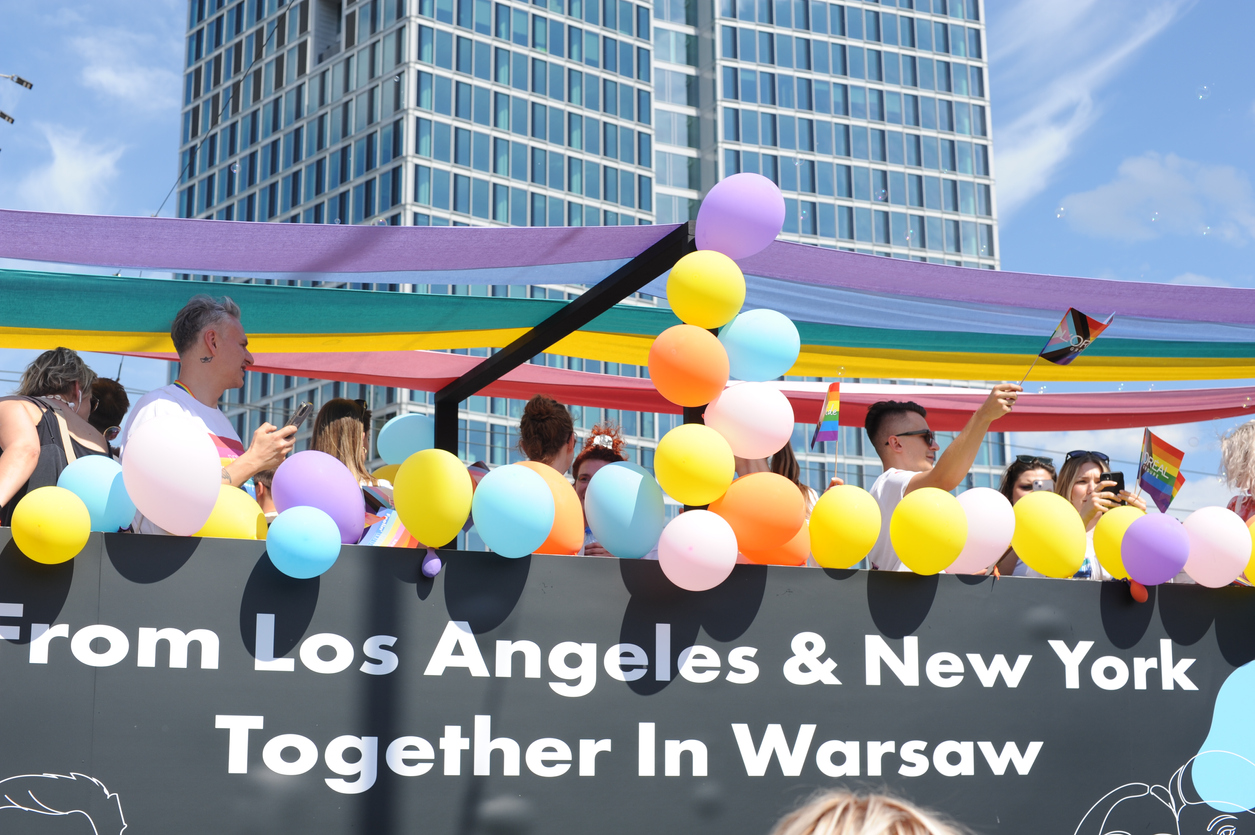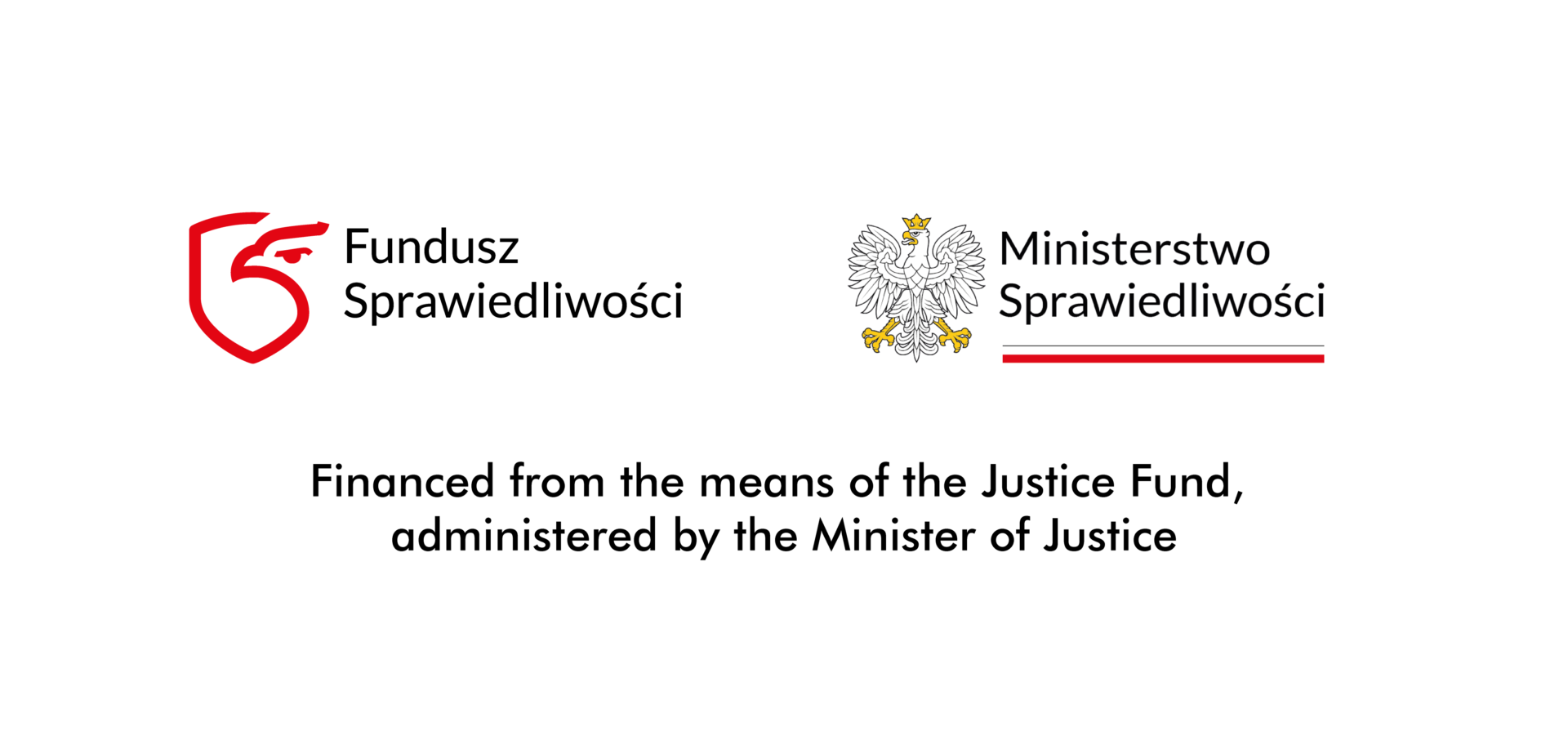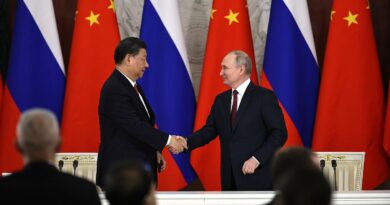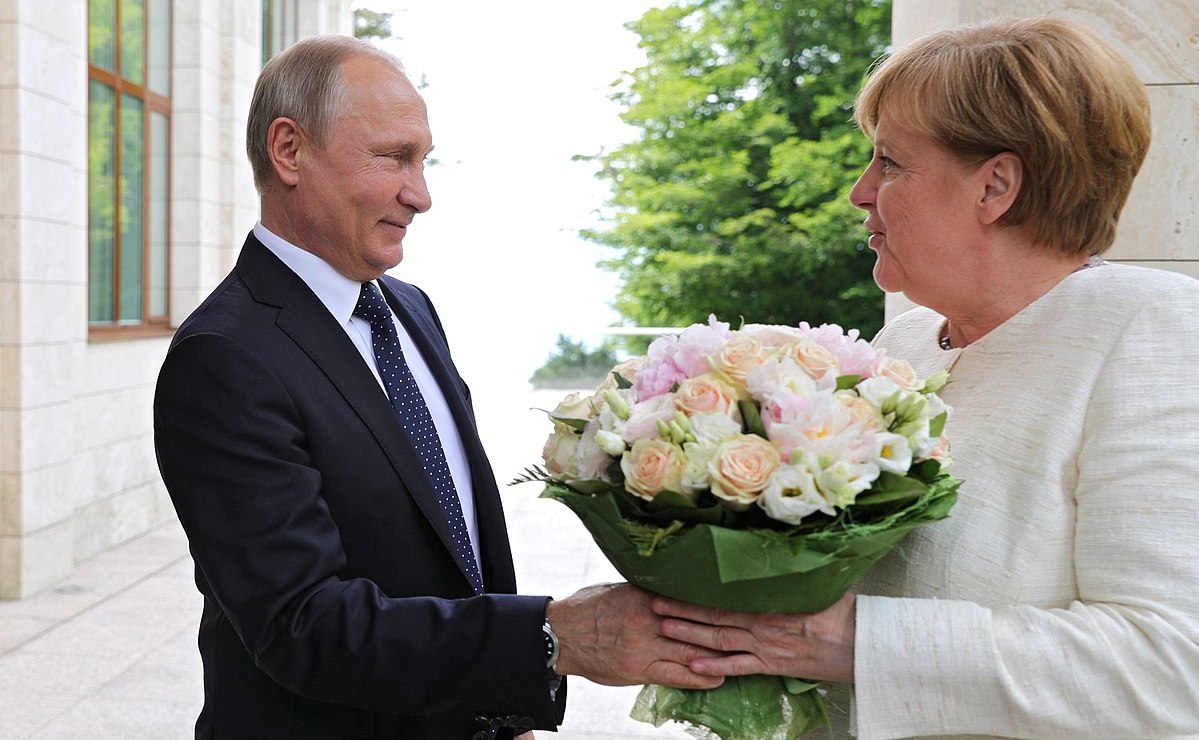Is the homeland of John Paul II now becoming woke, too?

In the West, especially in the United States and the United Kingdom, wokeism keeps gaining ground. Its adepts demand more and more privileges for the mostly imaginary “victims” they see, as well as punishments for the subjectively-defined“perpetrators” of social injustice. It turns out, however, that this trend, albeit in a truncated form, is slowly reaching Poland as well.
Zuzanna Dąbrowska
“Woke” is a term derived from African-American English. It first began to be used as early as the 1930s, in reference to an “awakened” awareness regarding centuries of oppression and a lack of social justice for blacks. In the 1980s, the term Critical Race Theory (CRT) was coined. CRT is a clarification of what wokeism is specifically about in relation to race. This theory assumes that every event, law, social norm, cultural property, interpersonal relationship, and above all power and wealth have their origins in racism, whether consciously or not. It should be added that, according to CRT, the “oppressive” party is always, without exception, the white person. And if the white person is a heterosexual male, so much the worse for him, and so much the more certain that his position is the result of black suffering.
CRT is an abstract theory, since virtually anything can be considered racism. It is racist to say that people with white and black skin differ from each other, and it is racist to say that people are the same regardless of skin color, because they are all human beings.
This theory’s adepts will indeed tell you that emphasizing racial differences is racism in itself, and a manifestation of “white supremacy.” But then the second statement will provoke their indignation as well, because a white person will never understand the difficulties faced by a black person from birth. So no, “we are not and will never be the same.”
In Critical Race Theory: An Introduction, published in 2001, CRT ideologues Richard Delgado and Jean Stefancic wrote that: “The critical race theory (CRT) movement is a collection of activists and scholars interested in studying and transforming the relationship among race, racism, and power. (…) Unlike traditional civil rights, which stresses incrementalism and step-by-step progress, critical race theory questions the very foundations of the liberal order, including equality theory, legal reasoning, Enlightenment rationalism, and neutral principles of constitutional law.”
This way of thinking was eagerly picked up by the Black Lives Matter (BLM) movement that was launched in 2013 in the aftermath of the acquittal of George Zimmerman, a member of a neighborhood watch group who had shot and killed unarmed black teenager Trayvon Martin while on patrol in February 2012. The BLM movement grew in strength with the violent deaths of further African-Americans at the hands of police and white civilians. Its activists were most visible during the riots that erupted in a number of American cities after the death of George Floyd in May 2020. It was then that monuments were toppled from their pedestals and stores vandalized, if they had the misfortune of “standing in the way” of the revolution.
Identity and treason
But wokeism is not just a racial issue. According to its adepts, the entire existing order in general should be deconstructed. An “awakening” is needed in matters of gender (queer theory, feminism, and gender studies), disability (disability studies), and obesity (fat studies).
Where a regular person sees a working mother of two children, the “awakened” (“woke”) see the fetters of patriarchy and the unjust division of gender roles, emanating from the continuing existence of socio-cultural genders that are deeply rooted in a conservative society. Where a rational person sees a boy who is simply going through a phase of playing with dolls and dressing up in his sister’s dresses, wokeism perceives a child who needs his gender to be changed as soon as possible.
Where most of us see a disabled person (or, as political correctness dictates, “a person with a disability”) – who, of course like all of us, has his or her own inherent and inalienable dignity, but because of his or her condition needs help and compassion – the woke will see not an impaired person, but “the identity of disability.”
They view the obese in a similar fashion. Being fat, according to wokeism, does not come with a series of health and social problems or difficulties linked to self-acceptance: it simply demands that the world should be adapted to the needs of the obese.
Accordingly, those struggling to get fit through rehabilitation or dieting are seen as traitors. They are people who are renouncing their true identity in favor of non-existent ideals forced upon them by a patriarchal society. In this sense, wokeism, while in theory a movement of “awakening” and of a better understanding of injustices to which the world, out of habit, is blind, in practice encourages people to wallow in their problems even when these could be cured, as in the case of obesity.
It should be noted that an extremely important role in wokeism is played by intersectionality – that is, the phenomenon of the intersection and overlapping of various social categories that are believed to reinforce discrimination against particular groups and individuals. For example, the most disadvantaged under the oppressive system, as well as the most valuable from the perspective of wokeness, would be an obese, black “transwoman” in a wheelchair.
In the view of the “woke,” such a person should not try to lose weight or mention that “she” regrets having had a sex-change operation. If “she” does, “she” would immediately go from being a priestess of the woke movement to becoming a Judas.
Are the Poles woke, too?
Having broadly outlined what wokeism is, let us turn our attention to Poland, a Central European country with a traditionally rather conservative, Catholic society. Could wokeism appeal to the Poles in any way?
After all, we Poles are not burdened by a colonial past, we have no historical issues with racism, and we are (still) a mostly mono-ethnic society. A partial answer to the question of whether Poland is becoming woke as well – indeed, an extremely interesting one – can be found in the results of a survey conducted by the Maison & Partners center on behalf of the Warsaw Enterprise Institute.
The survey “Are Poles woke?” was conducted using the CAWI method on a representative sample of 1,054 Poles. The survey report was compiled by Dr. Katarzyna Szumlewicz, an educator and philosopher from the Institute for Social Prevention and Rehabilitation at Warsaw University. Szumlewicz describes herself as a feminist, which is significant, for it shows that not only those with a conservative worldview recognize the dangers of wokeism.
As we read, the “awakening” centered around “tracking white privilege (…) has not spread in Poland despite the existence of ethnic minorities. This is because the imitated outrage applies only to black people, of whom there are few in Poland. Thus, this trend arrived in our country in a new version concerning customs, which appeared later. However, it has an identical conceptual framework to that in the US, mandating that we refer to any view and behavior other than those accepted in the “woke” community as ‘hateful’ or ‘unethical’.”
The survey examined whether Poles even knew what the term “woke” means.
It turns out that only one percent of respondents can define it, while 15 percent have heard of it but do not know exactly what it means. “Among these 15 percent, men and people between 25 and 34 years of age significantly predominate,” the report noted. “In contrast, the remaining 84 percent who are unfamiliar with the concept are predominantly women, respondents between the ages of 45 and 54, and residents of small towns. However, lack of familiarity with the term does not mean indifference to the ideas promoted by wokeism. As shown by this survey, some of them are already quite widespread in Poland.”
The survey investigated 14 areas, which were presented to respondents in the form of statements. The survey participant then chose from one of the following answers: “strongly agree,” “rather agree,” “rather disagree,” “strongly disagree,” and “don’t know/don’t have an opinion.”
Among the theses presented to respondents were: “Gender is not a question of biology, but first and foremost of who a person feels he or she is”; “Sexual Transition (gender correction) should be available on request”; “A child knows best what gender he or she is”; “LGBT people are the most persecuted social group in Poland”; “People who use hateful language should be thoroughly censored”; “If a person belonging to a minority commits a crime, there are certainly extenuating circumstances”; “Limits on consumption (e.g., of meat, air travel, or energy) are necessary to stop climate change”; and “Sex work is work like any other and should not be criminalized.” The surveyors also asked about the connections between capitalism and “toxic masculinity,” and whether “any company should be required to prove that it respects the environment and cares about social issues, and should be punished if it does not.”
The young and people from large cities
The most interesting results of the survey are as follows: Three-fourths of Poles agree with up to 6 statements (out of 14), and one-fourth with at least 7 out of 14 statements. Eleven percent of respondents agreed with more than 10 of the theses presented, while fifteen percent of respondents did not agree with any of them. Thus, as many as 85 percent of respondents agree with at least one of these statements.
When it comes to individual age categories, it is in the youngest category (ages 18-24) that there is the highest number of people – 36 percent – agreeing with at least half of the statements. In the other age categories, this is the case for only 26 percent of respondents. The smallest group agreeing with at least half of the statements is among those aged 45-54, and the largest group disagreeing with all of the statements are respondents to be found in the 35–44 age category. At the same time, interestingly, there are more people under 45 who disagree with all the presented “woke” statements than among older respondents.
Dr. Katarzyna Szumlewicz notes that “the correlation of views on woke with place of residence is also noteworthy. Residents of large cities (over 500,000 residents) are most likely to agree with at least half of the cited statements (32 percent), as well as most likely to disagree with all of them (21 percent).” Generally speaking, the greatest polarization of opinion is seen among residents of the largest cities.
Which statements recorded the highest rate of agreement?
64 percent of respondents agree that “people who use hateful language should be thoroughly censored” (27 percent strongly agree and 37 percent agree). The second-most popular statement is that “any company should be required to prove that it respects the environment and cares about social issues, and should be punished if it does not,” with 49 percent of support.
But what should raise the alarm is that the assertion which holds that “A child knows best what gender he or she is” came in third place. 46 percent of Polish respondents agree with this thesis!
Another popular statement is that “Gender is not a question of biology, but first and foremost of who a person feels he or she is,” with 43 percent of respondents saying they agree. Then come the theses on the recognition of “sex work” as a normal job (supported by 39 percent of respondents), the demand to allow sex change on request (38 percent), and the statement that LGBT people are the most persecuted social group in Poland (with 37 percent agreeing, but 39 percent disagreeing, which is also worth noting).
The right to be “trans”
The popularity of the demand for censoring hateful language, according to Dr. Szumlewicz, “may be due to fatigue with the intensity of hatred in public discourse, or the phenomenon of hate speech against individuals and groups on the Internet.” Having said this, Szumlewicz stresses that “wokeism, with its logic of cancel culture and absolute condemnation of those thinking differently, is by no means an answer to this fatigue.”
The statement that raises the strongest emotions is the one claiming that it is the child, not the doctor or parent, who knows best what gender he or she is. Dr. Katarzyna Szumlewicz emphasizes the presence of as many as three claims in the top table that concern transsexuality and transgenderism, out of a total of four questions related to this issue.
The fact is that countries where the procedure for sex reassignment in children has been done legally and in large numbers in state-run clinics, such as Sweden, Norway, and the United Kingdom, are “backing off under lawsuits from patients and their families. These have proved beyond any doubt the risk of irreversible damage to health.” Perhaps, then, society must first experience a tragedy to understand that it is indeed a tragedy? A better way would surely be to learn from the mistakes of others.
Dr. Szumlewicz links the statement regarding a minor’s gender self-identification to another thesis, namely that “Gender is not a question of biology, but first and foremost of who a person feels he or she is.”
“The belief, present in both claims, that gender is defined by something other than biology is in turn the basis of campaigns demanding the introduction of a right to gender self-identification in Poland,” alerts the scholar from the University of Warsaw. Activists are pushing for a situation in which gender can be officially changed based on self-identification alone, without any medical procedure or even a specialist’s diagnosis.
“This raises problems wherever it has been introduced, first and foremost concerning the encroachment of men into spaces reserved for women, such as prison wards, hospital rooms, and shelters and toilets, as well as sports competitions, where women have no chance when competing against male persons,” Dr. Katarzyna Szumlewicz notes.
How does the report’s author comment on the fact that 37 percent of respondents consider that LGBT people are “the most persecuted group in Poland?”
“According to reliable surveys, attitudes toward gays and lesbians covered by this acronym are steadily improving. Woke culture, however, is based on a kind of bidding war of suffering against which measurable facts do not count,” the report states.
The surveys mentioned are those conducted by CBOS, most recently in 2021, when CBOS researchers concluded: “The increase in the percentage of people who personally know someone with a homosexual orientation is accompanied by a marked change in Poles’ attitudes toward this group. In 2021, nearly one in four respondents already considered homosexuality normal (23 percent), which is up nine percentage points from the survey of two years ago. This is the highest result in the history of our research – almost six times higher than in 2005, for example (then, the percentage was four percent).”
Other, no less interesting conclusions from the “Are Poles woke?” survey include that “People with children are less likely to share the view that our planet is overpopulated and therefore childbearing should be abandoned,” and that “People with adult children are less likely to belong to the group that disagrees with all 14 statements.”
Return to reason
A detailed analysis of the survey begs the question of what can be done to stop the madness of wokeism.
No doubt the first thing to do is to make sure that full freedom of speech is respected in the universities. In the US, it is the universities that have been the breeding ground for harmful ideologies. The remedy is freedom of thought, confronting students with people who represent opposing views, and instilling in future elites the view that discussion, not dogmatism, is the source of intellectual development, as well as the fact that words, even difficult or bitter ones, do not kill.
Some valuable hints in the report’s conclusions based on the survey entitled “Are Poles woke?” are likewise offered by Dr. Katarzyna Szumlewicz. She stresses that she is an opponent of “departing from reason” (implying that this is what happens with wokeism). As she points out, her vision is “practical egalitarianism in place of celebrating imaginary injustice.” She stresses the importance of referring to the Enlightenment tradition. “Woke culture (…), instead of improving the situation, makes things worse for those on whose behalf it speaks. In the process, it spoils education and the public sphere. How can we combat it? With free discussion, using reason. Even if we get canceled for it.”




